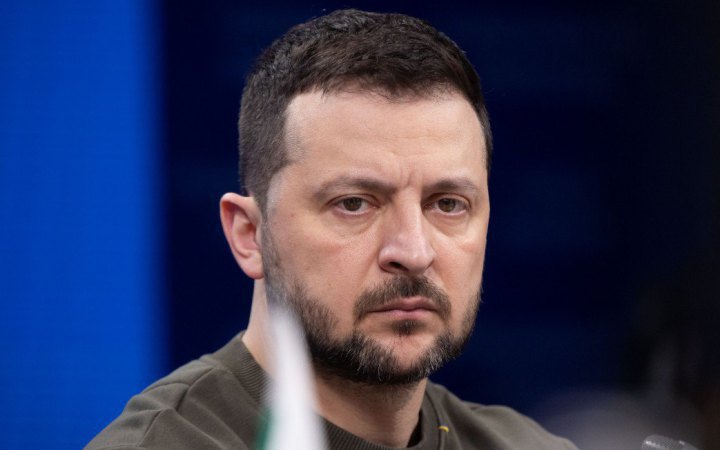The offer of a training mission of NATO troops on the territory of Ukraine were "not fully adequately perceived" because the details were not understood, President of Ukraine Volodymyr Zelenskyy said.
He said this in an interview with the French media BFM TV and Le Monde. Zelenskyy reminded that during a full-scale invasion, Ukrainian troops train with foreign instructors in third countries.
"We have discussed this many times with our partners. It's no secret that Ukraine sends its troops abroad and has sent them on training missions before," he said.
Artillery, special operations forces, and others have conducted such exercises. Zelenskyy said he had told French President Emmanuel Macron about the difficulties associated with this process.
"This is the first time I've talked about this, by the way, when we sent troops there and our guys came back, thanks to training missions from different countries, they had to adapt in Ukraine and undergo several months of training here. And this process is twice as long between the moment you send a person for training and the opportunity to come to the battlefield. That's why the very suggestion that let's shorten the time, let's conduct the training mission immediately in Ukraine, adapting to the state of war that exists. I don't see anything wrong with it, I'm sure it's not about the French army being in Ukraine, but about training processes," the President said.
He added that foreign military personnel could also be in Ukraine to repair Western equipment to save time on sending it abroad.
"So why don't the countries think about having technical personnel come to Ukraine, having licences granted to Ukraine and having co-productions that are beneficial to both countries, using the example of Caesar (SBU Caesar), it is beneficial to Ukraine and France, because due to the fact that Caesar has shown itself positively on the battlefield, the price is rising, and it is only France that benefits from it," the president said.
That is why he sees nothing wrong with Macron's proposal to send appropriate personnel for co-production and training. In Zelenskyy's view, Macron's words that nothing can be ruled out are not about Ukraine, but about Putin. As long as Ukraine is standing, French troops will be on French territory. And if Russia attacks a NATO country, it will be up to NATO to decide how and in what numbers to send its armies, the Ukrainian president explained.
Context
- French President Emmanuel Macron made a resonant statement about the possibility of sending troops to Ukraine back in February, and since then, the discussions in European capitals have not stopped. Most EU countries have already said that sending troops to help Ukraine is out of the question, but some countries, such as Estonia, are not so categorical. Prime Minister Kaja Kallas said that Western leaders should not rule out sending ground troops to Ukraine.
- Lithuanian Foreign Minister Gabrielius Landsbergis said on Wednesday that he was grateful for the discussion initiated by Macron, adding that "nothing can be taken off the table".
- Macron himself, commenting on his own words later, said that the statement was planned.
- President of Ukraine Volodymyr Zelenskyy said that Macron had not discussed the possibility of sending troops with him, but promised to raise the topic of new initiatives to help Ukrainians with other leaders.
- Ukraine has always emphasised that it does not need someone else's army - it needs to equip its own army with everything it needs, and this is the kind of support the country expects.
- According to LB.ua, the EU has been discussing the possibility of sending foreign troops to Ukraine for some time now, but so far it has only been about the possibility of providing emergency assistance in the event of some critical situation at the frontline.
- Macron also met with French party leaders, where, according to the politicians present, he made it clear that there can be no limits to the assistance to Ukraine.
- A week after his meeting with French President Emmanuel Macron, Czech President Petr Pavel said that NATO troops could provide support directly on the territory of Ukraine, as this would not violate any international rules. He recalled that after Russia's attack on Crimea and Donetsk and Luhansk Regions, NATO instructors worked in Ukraine.








